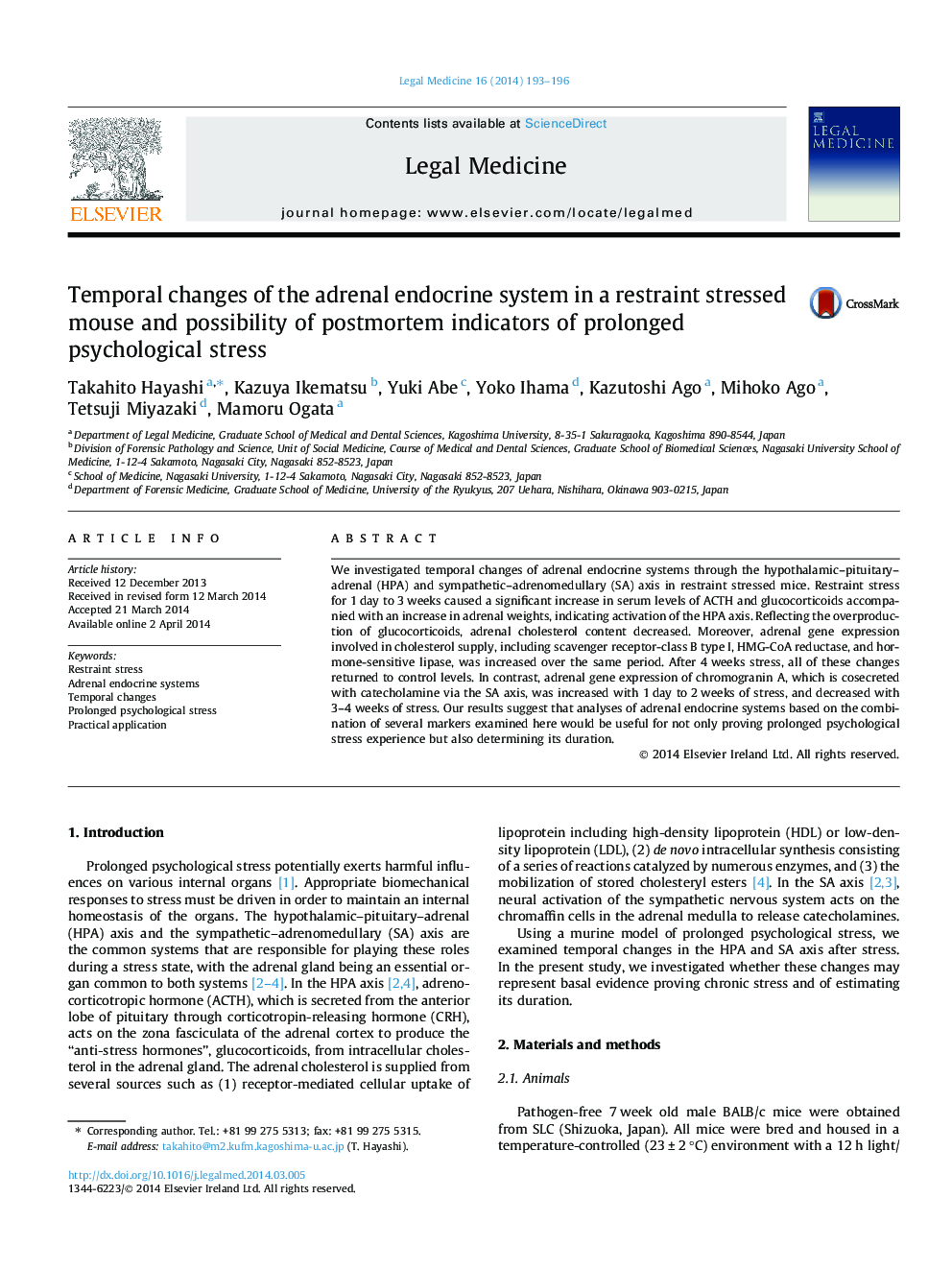| Article ID | Journal | Published Year | Pages | File Type |
|---|---|---|---|---|
| 103564 | Legal Medicine | 2014 | 4 Pages |
•We examined changes in the adrenal endocrine system after restraint stress.•Adrenal weights and serum ACTH and glucocorticoids increased with short stress.•Adrenal cholesterol content decreased with short stress.•CgA gene expression increased with short stress, and decreased with long stress.•The changes are useful for proving prolonged psychological stress and its duration.
We investigated temporal changes of adrenal endocrine systems through the hypothalamic–pituitary–adrenal (HPA) and sympathetic–adrenomedullary (SA) axis in restraint stressed mice. Restraint stress for 1 day to 3 weeks caused a significant increase in serum levels of ACTH and glucocorticoids accompanied with an increase in adrenal weights, indicating activation of the HPA axis. Reflecting the overproduction of glucocorticoids, adrenal cholesterol content decreased. Moreover, adrenal gene expression involved in cholesterol supply, including scavenger receptor-class B type I, HMG-CoA reductase, and hormone-sensitive lipase, was increased over the same period. After 4 weeks stress, all of these changes returned to control levels. In contrast, adrenal gene expression of chromogranin A, which is cosecreted with catecholamine via the SA axis, was increased with 1 day to 2 weeks of stress, and decreased with 3–4 weeks of stress. Our results suggest that analyses of adrenal endocrine systems based on the combination of several markers examined here would be useful for not only proving prolonged psychological stress experience but also determining its duration.
